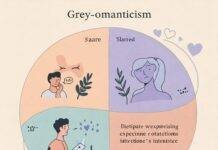Decoding the 5 Love Languages: Understanding How We Give and Receive Love
Dr. Gary Chapman introduced the five love languages in his groundbreaking book, “The Five Love Languages: How to Express Heartfelt Commitment to Your Mate.” Essentially, these languages describe the different ways people experience and express love. Indeed, understanding these can be transformative for any relationship. To clarify, the five love languages, which help us understand how we communicate affection, are:
- Words of Affirmation: Expressing love through verbal compliments, appreciation, and encouraging words.
- Acts of Service: Showing love by doing helpful things for others.
- Receiving Gifts: Feeling loved when receiving meaningful and thoughtful presents.
- Quality Time: Valuing undivided attention and spending meaningful time together.
- Physical Touch: Experiencing love through hugs, holding hands, and other forms of physical affection.
Why Understanding Your Love Style Matters: Discovering Your Affection Preferences
Discovering which love language resonates most with you is more than just a fun exercise. In fact, it offers valuable insights into several key areas. For instance, when your partner expresses affection in your primary love language, you feel truly seen and appreciated. Furthermore, you might be showing love in a way that isn’t being fully received by others if their primary love language differs from yours. Consequently, understanding each other’s love languages can minimize misunderstandings and conflicts. Ultimately, this understanding leads to strengthening bonds and fostering intimacy through consciously expressing love in someone else’s preferred way of feeling loved.

Discover Your Primary Love Language: The Quiz to Understand Your Affection Style
Therefore, if you’re curious to uncover your dominant love language, answer the following questions honestly, choosing the option that resonates most with you in each scenario. Make sure to keep track of your answers (A, B, C, D, or E). This quiz will help you pinpoint how you best experience love.
Instructions: For each question, select the answer that feels most meaningful to you.
Question 1: What Makes You Feel Appreciated? Understanding Your Reception of Love
- What makes you feel most appreciated?
- (A) Hearing someone say kind and encouraging words to you.
- (B) Someone helping you with a task you dislike.
- (C) Receiving a thoughtful gift.
- (D) Spending uninterrupted time with someone you care about.
- (E) Getting a comforting hug or holding hands.
Question 2: How Do You Typically Show Love? Exploring Your Expression of Affection
- How do you most naturally express love to others?
- (A) Telling them how much you care or appreciate them.
- (B) Doing things for them to make their life easier.
- (C) Giving them little surprises or meaningful presents.
- (D) Planning special outings or just being present with them.
- (E) Offering hugs, pats on the back, or sitting close to them.
Question 3: What Actions Feel Most Hurtful? Identifying Your Love Language Needs
- What would be the most hurtful thing a loved one could do?
- (A) Say critical or unkind things to you.
- (B) Fail to help you when you really need it.
- (C) Forget a special occasion or give a thoughtless gift.
- (D) Be constantly distracted or cancel plans with you.
- (E) Avoid physical affection or seem distant.
Question 4: Finding Comfort: What Helps Most? How Your Love Language Influences Support
- What do you appreciate most when someone is trying to comfort you?
- (A) Hearing words of sympathy and encouragement.
- (B) Them taking care of practical things for you.
- (C) Them bringing you a small token of their care.
- (D) Them just being there to listen without distractions.
- (E) A comforting hug or gentle touch.
Question 5: What Makes You Feel Truly Connected? Understanding Your Deepest Affection Needs
- What makes you feel most connected to someone?
- (A) Meaningful conversations and heartfelt compliments.
- (B) Knowing they are willing to go out of their way for you.
- (C) Receiving something that shows they were thinking of you.
- (D) Sharing quality experiences and undivided attention.
- (E) Physical closeness and affectionate gestures.
Understanding Your Love Language Quiz Results: What Your Answers Reveal About Your Affection Style
Now, tally up your answers. The letter you chose most frequently corresponds to your primary love language.
- Mostly A’s: The Power of Words in Your Love Language. If this is your dominant answer, it means that hearing words of love, appreciation, and encouragement is key for you. Consequently, verbal affirmations make you feel seen and loved.
- Mostly B’s: Love Through Action: Your Preferred Love Language. When B is your most frequent choice, it indicates that actions truly speak louder than words for you. Therefore, you feel most loved when people do helpful things for you.
- Mostly C’s: The Significance of Gifts in Your Affection Language. For those who mostly chose C, it suggests that thoughtful and meaningful gifts make you feel valued and cherished. Ultimately, it’s the thought behind the gift that truly matters to you.
- Mostly D’s: The Value of Togetherness in Your Love Language. If D was your primary answer, it implies that undivided attention and spending meaningful time together are paramount. In contrast, distractions and superficial interactions can leave you feeling unloved.
- Mostly E’s: The Comfort of Touch: Your Primary Way of Experiencing Love. Should E be your most frequent response, it signifies that physical affection, like hugs, holding hands, and cuddling, communicates love deeply to you.

Applying This Knowledge to Your Relationships: Speaking the Language of Love Effectively
Understanding which love language you speak and the love language of those around you is just the first step. To that end, here are some actionable takeaways. First, communicate your needs by sharing your primary love language with your loved ones, letting them know how they can best show you they care. Second, learn the love languages of others by observing how your loved ones express and receive love; in addition, you can also ask them directly what makes them feel most appreciated. Third, make a conscious effort to try expressing love in the primary love language of the people you care about, even if it doesn’t come naturally to you. Furthermore, remember that it takes time and effort to learn and speak different languages of love fluently. Finally, celebrate differences, recognizing that everyone expresses and experiences love in their own unique way.




































